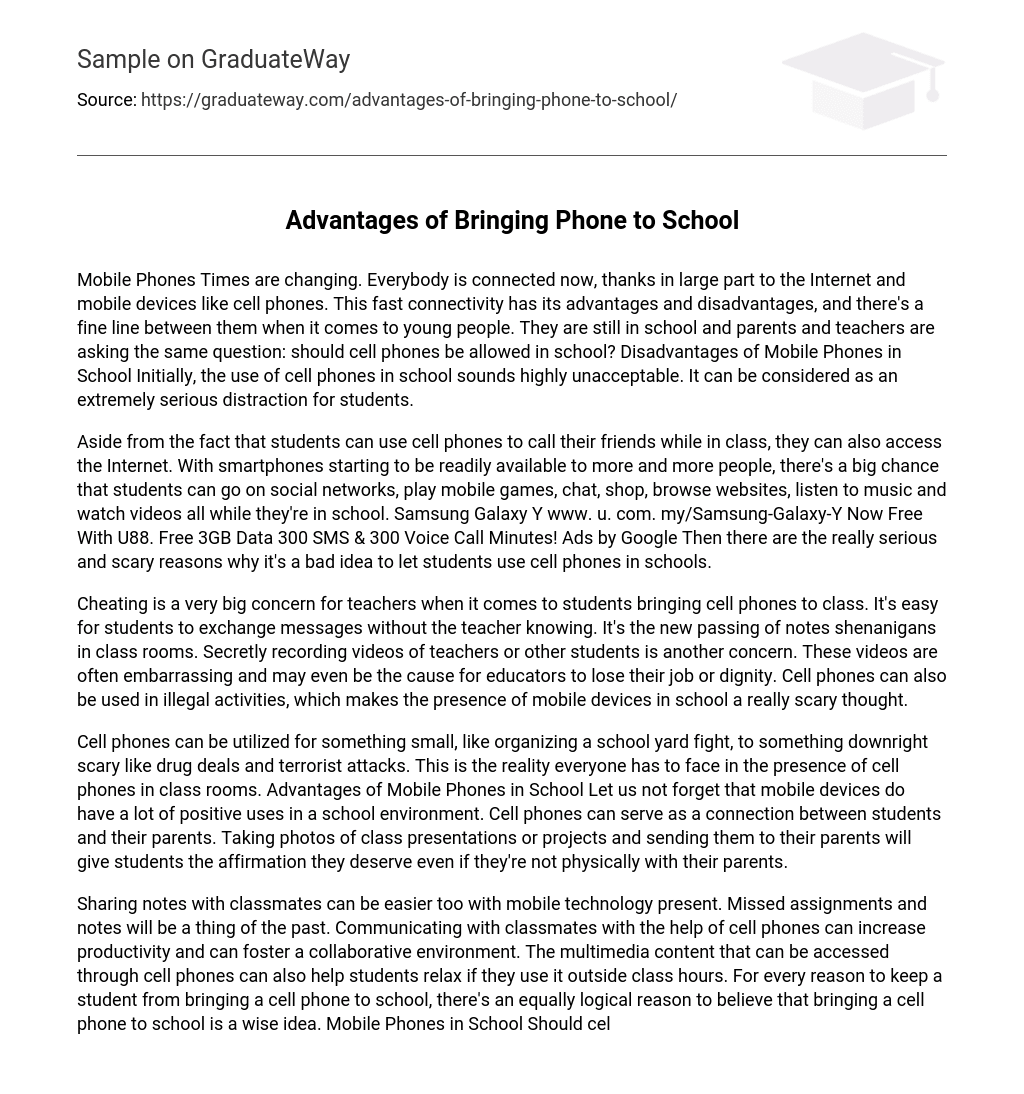With the advent of the Internet and mobile devices like cell phones, everyone is now connected. This has both advantages and disadvantages for young students in school. Hence, parents and teachers are faced with the dilemma of whether or not to allow cell phones in schools. Initially, it may seem highly inappropriate due to being a major distraction and affecting students’ focus.
While cell phones offer benefits in schools such as Internet access and diverse activities, there are legitimate concerns about their usage among students.
Cheating and privacy invasion are major concerns for teachers regarding students bringing cell phones to class. With cell phones, students can easily exchange messages without the teacher’s knowledge, mimicking the previous method of passing notes. Moreover, there is a risk of secretly recording videos of teachers or peers, which can lead to embarrassing situations and potential damage to educators’ careers and reputation. Furthermore, the presence of mobile devices in school raises apprehension as they can be utilized for illegal activities, amplifying the fear factor for educators.
Cell phones have various uses, ranging from harmless activities like organizing schoolyard fights to more worrisome behaviors such as drug deals and terrorist attacks. Consequently, the existence of cell phones in classrooms is a fact that everyone must recognize. Nevertheless, it is crucial to comprehend the benefits that mobile devices can bring in an educational setting. For example, they can serve as a medium of communication between students and their parents. Students can capture images of class presentations or projects and forward them to their parents, ensuring acknowledgement even when not physically present together.
The convenience of mobile technology has made it simpler to exchange notes with peers, eliminating the issue of missed assignments and notes. Utilizing cell phones for communication can enhance productivity and foster collaboration among students. Additionally, cell phones provide access to multimedia content that can assist students in relaxing outside of class hours. While there are valid arguments against allowing cell phones in schools, there are also logical reasons supporting their permission. Is it appropriate for cell phones to be permitted in school?
Although mobile phones can be beneficial in education and communication, it is crucial to establish restrictions to prevent misuse. To accomplish this, collaboration between school administrators, teachers, parents, and students is necessary in developing guidelines for cell phone usage. A possible measure could involve disallowing cell phone use during classes unless authorized by a teacher. It is essential for all stakeholders to engage in discussions regarding effective approaches and adaptations to the evolving nature of communication in contemporary society.





